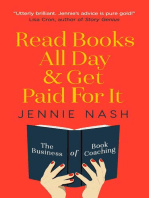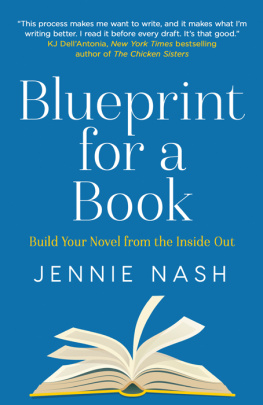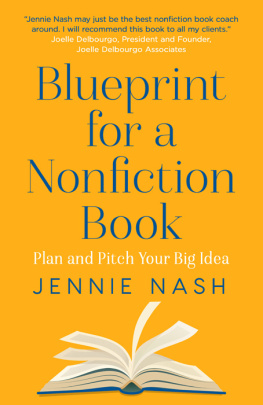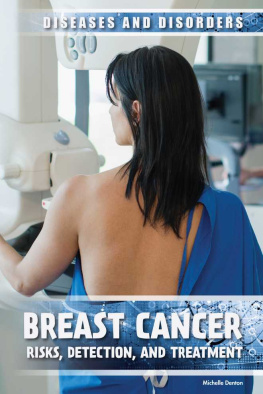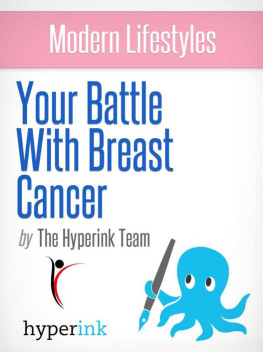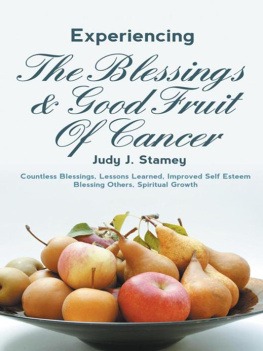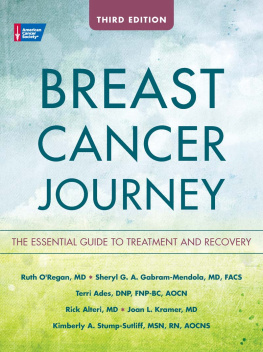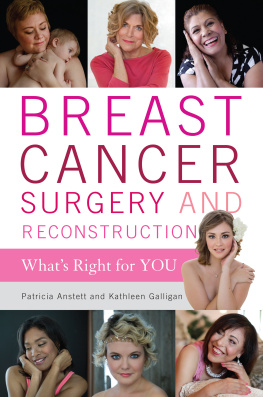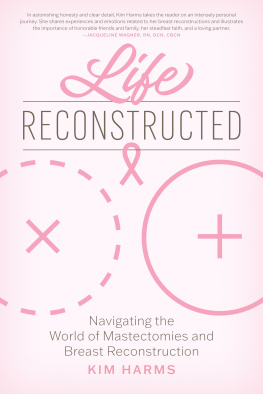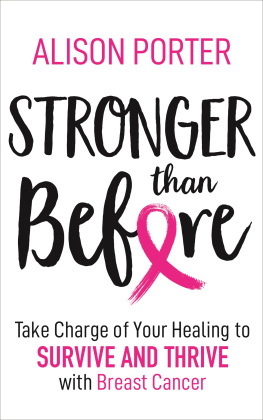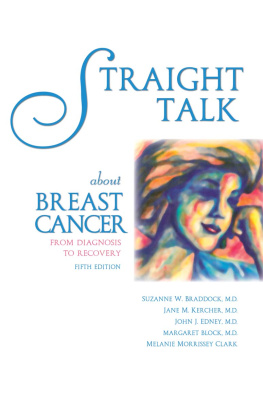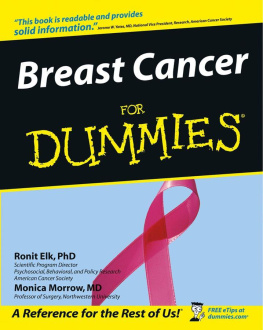M ost of us cant do much to find a cure for breast cancer. We can write a check or take a fund-raising walk, but were not the ones in the lab working with vaccines and genes or coming up with new theories of detection that might make the mammogram seem archaic. What we can do whether were looking back on a cancer experience, helping someone else through a cancer experience, or living through the horror right this minute is tell our story. Stories help. Stories heal. Your story might be the very thing that saves someones life or helps them get through the night. It might be the only thing that brings you a measure of peace.
Its not always an easy or natural thing to tell your own story. Two days after I was diagnosed with cancer, a good friend of mine another writer wrote me a brief e-mail: You are taking notes, arent you? I cracked up, because it was so preposterous an idea. During the many sleepless nights I had during my illness, however, this story started to come alive in my head. While my husband and our two little girls slept soundly in the quiet of our dark house, I began to write it down. I wrote about how my instincts are really good, my kids are really resilient, my dad will fold my underwear, and how sometimes the only difference between getting to live and having to die is luck. I wrote a series of lessons. I wrote about things I had learned and ways I had changed, and I realized that I got wise having breast cancer. Im a wise old lady at the age of thirty-six. If you have survived this disease or helped someone survive it or helped someone leave this world because of it, youre probably wise, too. You have a story to tell and I think you should tell it, whether its written on paper, whispered ear to ear, or shouted out on a fund-raising walk. It may not be a cure, but its a truth, and it can make a difference.
Lesson #1
Survival Is a Matter of Instinct
You know your body better than anyone else. If you think you have cancer or you dream you have cancer or you have a nagging, persistent belief that the cancer you conquered has recurred, then keep pushing for answers until youre sure, one way or the other. Even if you have a long history of being a hysterical hypochondriac, trust your instincts. Finding cancer early saves lives, and its just about the only really sure thing that does.
I imagined I had cancer before I knew I had it. The idea of it crept into my consciousness like a song that I couldnt stop singing a melody I couldnt remember ever learning, but whose particular sound was stuck in my head all the same, insisting on being heard.
The first faint notes came from a local news report in my hometown of Santa Barbara, California, and though I now live a hundred miles to the south, the flurry of phone calls that followed Did you hear? Have you talked to her? obliterated the barriers of distance: Lisa, a dear friend from high school, had been diagnosed with advanced metastatic lung cancer. This was news in that town because Lisa was the daughter of the citys congresswoman who had won her husbands seat after his sudden, midterm death from a heart attack two years before. It was both awful and amazing, like learning that lightning had struck in the same place twice. I immediately picked up the phone and called Lisa, hoping that the reports were wrong, hoping that it was a terrible rumor, hoping uncharitably that maybe theyd gotten the name wrong and it was Lisas little sister or brother who was ill.
Nathan, Lisas husband, answered the phone and I pictured him stationed there in the living room of their Berkeley home, stoic and generous, rising to the occasion of a phone ringing off the hook. I didnt know Nathan well, but I recalled how he had pursued Lisa in college, convinced that she was the woman he was destined to marry, and how Lisa had hemmed and hawed, concerned with the philosophical questions of how you could decide on one person to share your life, and how you could know when youd found him. It seemed a laughable debate, when Lisa finally brought Nathan home: she was a very tall, very blond, very blue-eyed woman with a happy, open face, and Nathan looked like a carbon copy who had been designed for the express purpose of being her lifes mate.
He told me the same thing he told all the other stunned callers who dialed their house in Berkeley that night: Its true. We just found out. Shell call when we know more.
At Santa Barbara High School in the mid-1980s, Lisa was a homecoming princess, a nationally competitive long-distance swimmer, valedictorian of our class, my neighbor, and the first person I had ever met who recognized, understood, applauded, and shared my ambitious nature. She was a smart girl who prided herself on her smartness and for that alone I would have loved her because it gave me the confidence to feel proud, too. We took the exact same schedule of advanced placement courses and pushed and prodded each other to achieve the grand ambitions we both nurtured like pearls. At the time, we werent sure exactly what those ambitions were or where they might take us; we only felt the fierceness of the desire to do something or be someone, and that desire brought us together sometimes in unexpected ways and places.
The summer after our junior year, I went to England for an immersion course in Shakespeares plays. I was thrilled about the adventure but homesick from the moment I stepped on the plane in Los Angeles. I was the youngest student on the trip by five years the only high school student and I not only felt scared of the intellectual challenge, I felt scared of the reality of being in a foreign country with a group of strangers. We had two days in London before going out to Stratford, where we would be studying. On one of those days, we went to visit St. Pauls Cathedral. I was sitting in one of the pews, staring up at the dome and listening to the hushed sounds of a throng of people trying to be silent, when I heard someone say my name too loudly. I snapped around to see Lisa, standing there in the aisle, towering above the crowd.
I sprang up to hug her. What are you doing here? I demanded, thinking she had somehow come to give me a message or bring me something Id forgotten to pack.
My dad just decided to come, she explained. I looked over her shoulder at her dad, as if his presence would confirm the fact of her being there.
But how did you know I would be here? I pressed, thinking that somehow my mother a travel agent had passed along some inside information.
I had no idea youd be here, Lisa explained, laughing. I pictured you watching


